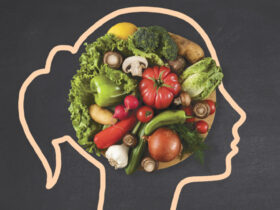(Taken from Dr. Nickerson’s Holistic Mental Health Coach Training Program).
 You’ve no doubt heard that stress can contribute to many health issues. The idea that stress is related to physical health was conceived in the late 1960’s when psychiatrists Thomas Holmes and Richard Rahe created a stress scale that included 43 typical life events. Over 5,000 medical patients took the survey and the results of the study demonstrated that the higher the stress score, the greater change the patient would experience health issues.
You’ve no doubt heard that stress can contribute to many health issues. The idea that stress is related to physical health was conceived in the late 1960’s when psychiatrists Thomas Holmes and Richard Rahe created a stress scale that included 43 typical life events. Over 5,000 medical patients took the survey and the results of the study demonstrated that the higher the stress score, the greater change the patient would experience health issues.
Fast forward 50 years and umpteen research studies later, we are now learning that EVERY emotion, good and bad, has an impact on the physical body. Scientists refer to this in medical terms as Psychoneuroimmunology. The study of how our thoughts, beliefs and attitudes can dictate the quality of our health. Holding in anger about your ex? You might end up with high blood pressure, headaches or even hemorrhoids. Having a hard time letting go of your grief? You may experience digestive problems, fatigue, headaches, chest pain or sore muscles. Happiness and peace, on the other hand, boosts the immune system, lowers blood pressure, decreases aches and pains, and increases life expectancy.
MIND
Some experts say that our emotions come from our thoughts. Research has shown that our thoughts are running on auto-pilot roughly 46% of the time. The autopilot “Default Network” in our brain kicks in whenever we are planning, daydreaming or mulling things over. This network is also located in the part of the brain that scans our history and calculates our future based on the stream of present incoming information.
The Default Network’s counterpart is the Direct Experience Network, which is highly engaged when we are experiencing something new — like our first walk on the beach — but stops being engaged when that repeated experience gets filed away in the Default Network’s memory bank. This is why your walks on the beach probably now entail a lot of daydreaming or unconscious ruminating over the past or future.
That same research shows that being in a mindless state does NOT make us feel happy. In a nutshell, if our emotions come from our thoughts and we’re spending nearly half our time in a mindless or numbed out state, what kind of effect is that having on our health? How do we disengage from operating on autopilot?
The answer, as you may have guessed is MINDFULNESS. Mindfulness trains the brain to stay focused on what we are experiencing in the moment. It not only disengages autopilot mode, it commands our physical body to be fully present, as well. It helps us to NOT react to our emotions. Because mindfulness techniques increase the mind-body connection, it enhances our nervous system, and greatly improves the quality of our relationships as it fosters more empathy and less reactivity.
Bruce Lipton, PhD has carried out countless research studies demonstrating that our attitude, level of optimism and mental state is key in determining whether or not we ‘inherit’ diseases. However, most people have difficulty mastering the ongoing conscious and unconscious chatter in their minds without first receiving assistance to improve their mental health. Holistic mental health coaches have been trained expansively in this area.
BODY
Another way we can boost our emotional health is with the aid of our physical bodies. Besides the recommended 30-minutes of exercise, there are many ways to rev up your ‘happy hormones’ via physical activity such as dancing to upbeat music, taking a cold shower or a hot bath, walking barefoot on the earth, laughing, doing yoga or tai chi, getting a massage…the list is endless!
Our bodies and minds do not work well without adequate nutrition. For example, there are countless people on medications for depression and anxiety, despite all of the research indicating equal results by merely adding Vitamin D3, B12 and the Omegas or supplements to our diet. This is a simple yet often overlooked fix worth further consideration.
Dr. Stephen’s Porge’s research on the polyvagal nerve theory further elaborates on the importance of having a healthy gut in order for the brain to function properly and develop a positive mindset. This finding is cutting edge and helps to further explain the detrimental effects of consuming foods with GMO, gluten, preservatives and pesticides. In addition, the polyvagal nerve is connected to the nervous system and determines whether we are able to feel safe in our world.
SPIRIT
Spirit is that nonphysical part of us which is the seat of our emotions and character. It’s our soul! Though intangible, it appears everywhere in our lives and affects our wellbeing. Research studies indicate that those who have a spiritual practice and feel connected to the Divine have fewer hospital visits and heal much faster after surgery. Just the mere knowledge that they have a special purpose here on Earth provides a buffer that transcends all understanding.
According to the research conducted by Bartolo (2018), the construct of hope can be connected to spirituality as it often allows for an individual to trust in something greater than themselves and realize that the future can hold surprisingly positive outcomes. The idea of hope has definite roots in positive psychology and is comprised of more optimistic thought patterns that can promote character strengths and resiliency in health and healing. The findings of the research also suggest that it is important to remember that hope not only speaks to one’s character but is a construct that can be learned and practiced.
ENERGY
Our emotions are actually energy in motion throughout our bodies. According to Dr. David Hawkins, every emotion has a vibrational frequency that either helps or hinders physical health. For example, when we hold lower vibrational emotions such as guilt, fear, shame or sadness, our muscles tighten, constrict or atrophy.
In his book, Power vs Force, he discusses the levels of consciousness that are contingent upon the vibrational level of our emotions. Joy, positive expectation, gratitude, trust or curiosity increase levels of consciousness and overall health. This supports studies related to anger leading to heart disease, shame lending itself to cancer, and resentment and feeling stuck often being a condition of chronic arthritis. Research repeatedly indicates that the emotional frequency that we function in our day-to-day lives, has a profound effect on our immune system, nervous and endocrine systems.
Highly Sensitive People (HSP) and Empaths are even more susceptible to the energy of emotions. However, they are not only susceptible to their own, but to the emotions of those around them! They often internalize other people’s pains. Dr. Elaine Aron has researched this phenomenon for decades and offers practices that can be used to clear and balance energy, ultimately making a significant difference in the emotional well being and thus, physical health of the body.
Jeannette Folan, author of the Diary of a Teenage Empath and accompanying interactive digital workbooks for highly sensitive teens, elaborates on the importance of teenagers learning effective energetic coping skills and practices to deal with these energetic emotional overloads https://www.empathdiary.com/
For more information and registration, visit http://nickersoninstitute.com/individual-health-coach-training/ or contact Dr. Nickerson at drwendynickerson@gmail.com or call 888-339-8443.
Dr. Nickerson’s Certified Integrative Health Coach Training Program is a one-of-a-kind accredited holistic mental health care training program that can be used as a stand-alone mental health certification or as an expansion of present practitioner or healthcare knowledge and expertise
The next 15-week live/virtual training program begins in June, 2019.
Testimonials
“Dr. Nickerson’s Certified Integrative Health Coach Training Program (IHCTP) is a terrific way for students to learn how to offer a healing space for those looking for mental health assistance and support using a variety of conventional and complementary evidence-based techniques and methods. Health coaches are needed in hospitals, clinics, communities and schools everywhere. Dr. Nickerson’s teaching approach is light, thoughtful and inclusive. It was a treat to be in a learning atmosphere and have active conversation with such wonderful people. The program will help you grow personally as well as professionally.”
— Dr. Pam Purcell BSC ND CBP










